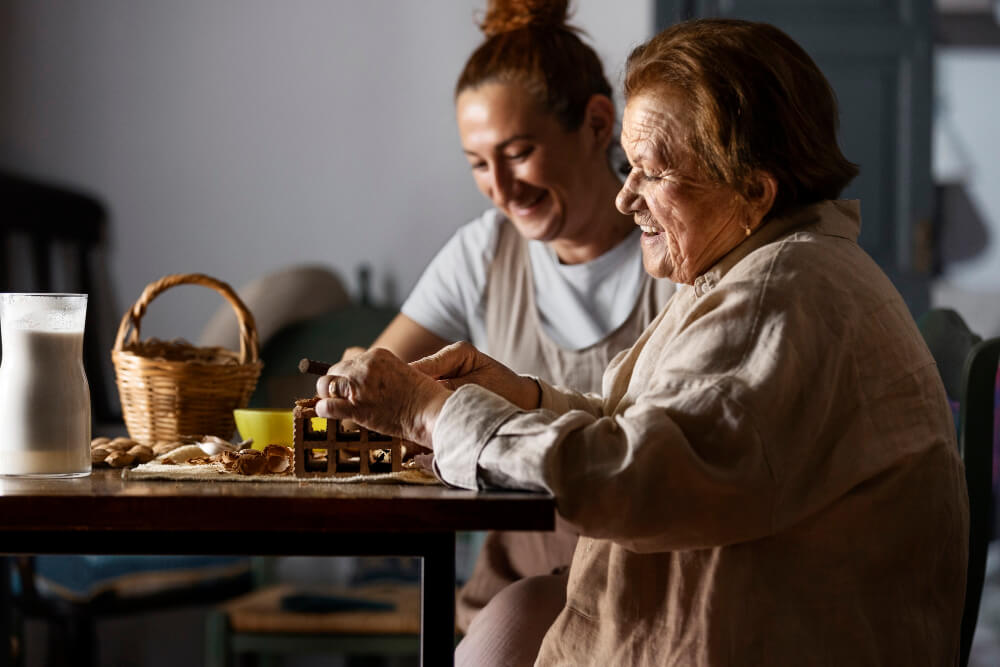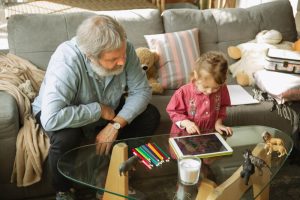Dementia affects the memory, thinking, and social abilities of an individual. The decline in cognition interferes with your loved one’s ability to perform daily chores. Therefore, caring for a loved one with Dementia requires unique approaches to ensure the safety and well-being at home.
In this comprehensive guide, we’ll explore effective Dementia care techniques that contribute to the safety and comfort of your loved ones within your home.
Insights into Dementia
Dementia encompasses various cognitive disorders, with Alzheimer’s disease being the most common form, including vascular Dementia, frontotemporal Dementia, and more. Regardless of the specific diagnosis, Dementia often leads to challenges in communication, memory loss, impaired judgment, and changes in mood and behavior.
Common Symptoms Of Dementia
- Forgetting recent events.
- Repeating similar words over and over again.
- Misplacing commonly used items.
- Experiencing a change in interests.
- Difficulty in remembering and making decisions.
- Challenges in problem-solving abilities.
- Sleeping pattern changes.
- Increased Anxiety, frustration, suspiciousness, and depression.
- Requiring help with grooming, bathing, eating, and other activities.
- Experiencing hallucinations.
Tips To Keep Your Loved Ones Safe at Home
- Home Modifications: Modify your living space by installing handrails, ramps, and grab bars to create a Dementia Friendly Home. Moreover, remove tripping hazards, secure loose carpets, and ensure good lighting throughout the home to minimize hazards with mobility.
- Secure Exits: Secure exits with alarms, locks, or doorknob covers to prevent your loved ones from wandering unsupervised. You should consider utilizing tracking devices for added security.
- Medication Management: Implement a system for managing medications, such as pill organizers or automated dispensers. It will help your loved ones prevent missed doses or accidental overmedication.
- Communicate with Clear and Simple Instructions: Communicate using simple language. Break down tasks into step-by-step instructions and allow your loved one to understand better and follow through with tasks.
- Engage in Non-Verbal Communication: Utilize non-verbal cues, such as gestures and facial expressions, to enhance communication. Try to maintain eye contact with a gentle and reassuring tone.
- Establish a Daily Routine: Establish a daily routine for your loved ones with Dementia that includes regular meal times, activities, and rest periods. Following a consistent routine is key for individuals with Dementia.
- Engage in Meaningful Activities: Plan activities that align with your loved one’s interests and abilities, including puzzles, music, gardening, or simple exercises. Mindfulness activities for dementia patients promote a sense of purpose in your loved one’s life.
- Seek Support From Groups: Caring for someone with Dementia is emotionally challenging. So, connect with support groups, either in-person or online, to share experiences and gain insights from others facing similar situations.
- Attend Workshops: Stay informed about the progression of dementia and caregiving techniques. Attend workshops or seek guidance from healthcare professionals to enhance your caregiving skills.
- Consider Professional Home Care Services: Consider professional home care services for assistance with daily activities, medication management, and companionship that offers respite for family caregivers.
- Regular Medical Assistance: Get regular medical assistance from healthcare professionals to monitor the loved one’s health, address emerging issues, and adjust care plans accordingly.
Conclusion
Dementia care involves a holistic approach that integrates safety measures, effective communication, meaningful activities, and ongoing caregiver support. By creating a dementia-friendly environment at home and continually adapting care strategies, you can enhance the quality of life for your loved one and provide them with a safe and nurturing space.
If you’re seeking guidance or exploring professional care options for a loved one with Dementia, we’re here to help. At Sierra Oaks Assisted Living and Memory Care, we provide compassionate and specialized care to ensure your loved one’s safety and well-being. Contact us today to learn more about our services and how we can support your family on this journey.





